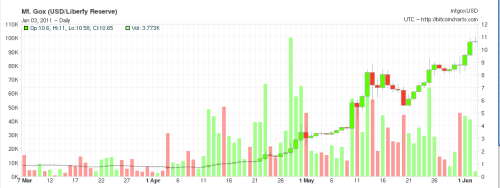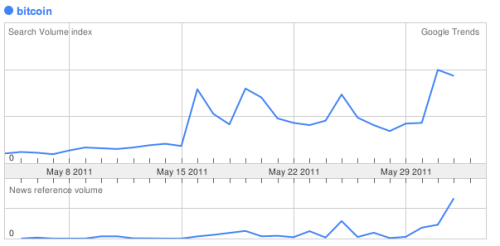Several days ago, my colleagues misters Onies and Daniele and myself were heavily debating whether the professed societal benefits of BitCoins actually outweighed the probable negative social costs. It was my position that the opportunity one to reverse the trend of income polarization greatly outweighed the negative externalities. However, I was greatly enlightened by our subsequent discussion. One thing that we only as of late realized is that BitCoins, in the same manner it opens markets and lowers barriers to trade, also enables to construction of parallel markets, colloquially known as “black markets”.
Now, the potential for the rise of these parallel, and usually illegal markets is serious threat that we believe all must consider. This slightly paradoxical since BitCoins are meant to free transactions from the grip of state power and domestic monetary policies. However, although one client might wish to operate outside the traditional market boundaries, it is highly unlikely that he would similarly wish to reside outside of the societal boundaries he enjoys within his domicile. Let us highlight one aspects of the parallel market economy that would be greatly catalyzed by the widespread adoption of BitCoins:
The illegal drug trade:
The mass production of illegal drugs is widely recognized as devastating plague to all peoples of all cultures. A study administered by the United Nations found that in 2005, the global drug market generated approximately $321.6 billion United States dollars., representing almost 1% of worldwide commerce. Now, as my erudite colleague so lucidly described, BitCoins easily lends itself to money laundering and the general obfuscation of transactions. Unsurprisingly, one the most significant bottlenecks in the drug trade is the laundering of money from first-world markets to their final destination, generally in clandestine territories far from the reach of the law. A simple internet connection and some capital investment could completely eliminate the most signification obstacles to the flow of currency. Given their savvy and unrelenting determination, it is clearly of the essence that technology such as BitCoins be safeguarded from these depraved men.
It is apparent that there are many issues regarding the illegal drug trade and the viability of BitCoins. However, as you probably already know, it is only one of the many dastardly industries that would broadly benefit from BitCoins. For example, those who run prostitution rings would greatly benefit as it would eliminate all tangible evidence of their perverse pimpery. Amanda Kloer, an abolitionist and author out of Washington, D.C., importantly notes that many of our greatest criminals were only convicted of money-based crimes such as tax evasion. If we let a pivotal tool of law enforcement be squandered by a potentially inviable product, the only appropriate emotion would be shame.





